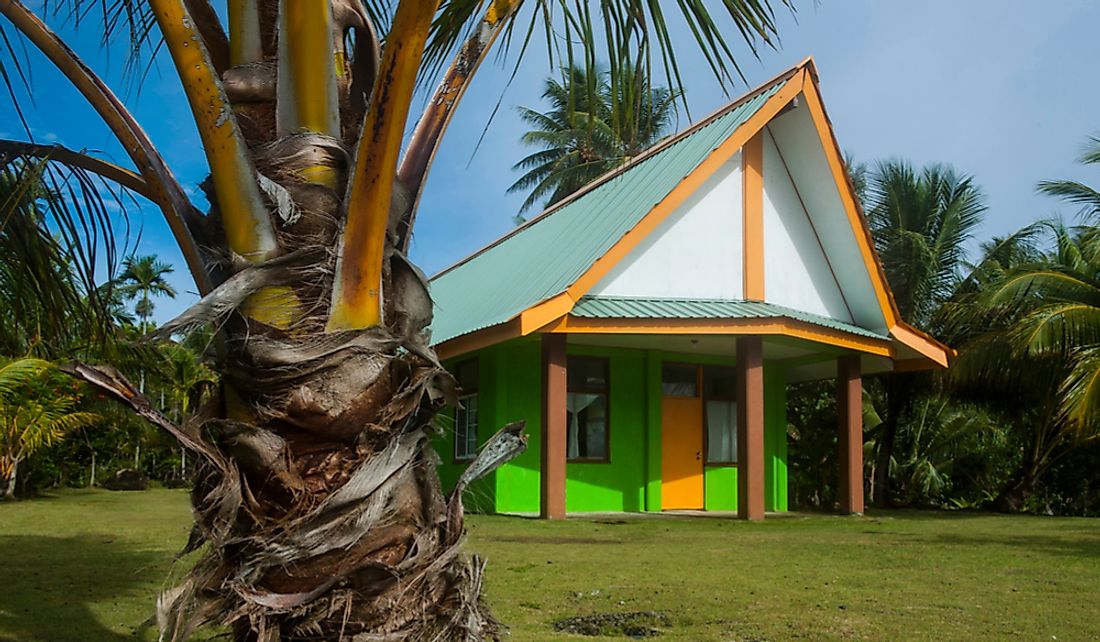Religious Beliefs In The Federated States of Micronesia

The Federated States of Micronesia is a 271 square mile nation comprised of 607 islands in the western portion of the Pacific Ocean. The country is made up of four states the largest of which is Pohnpei State which occupies an area of roughly 144 square miles. According to the United Nations Department of Economic and Social Affairs, in 2016, the Federated States of Micronesia was home to approximately 104,937 people. People have lived within the nation's boundaries for more than 4,000 years, and the religion practiced within Micronesia reflects its long history. Today, Christianity is the religion of the majority.
History of Religion in the Federated States of Micronesia
Religion in Micronesia dates back to the establishment of the first human societies on the islands. When the first communities settled in Micronesia, they brought over religious practices from their previous origins. Over time, a religion centered in Pohnpei became the most dominant religion in Micronesia. The dominant religion was popularized by the Saudeleur dynasty that took over Pohnpei. However, the Saudeleur dynasty would later collapse due to several reasons, and the Micronesians believed that the main reason for the collapse was the rulers who had angered the deities. Several historical sources indicate that a warrior named Isokelekel led the rebellion against the Saudeleur dynasty. After the regime had collapsed, he made some important changes to the Micronesian way of life such as the establishment of a priestly system. The system introduced by Isokelekel is still in use on the island of Pohnpei in modern times. Christianity was introduced to the Micronesian people by Spanish missionaries after the Spanish took control of the nation. One of the missionaries who worked hard to ensure the spread of Christianity in Micronesia was Luther Gulic.
Religion in Present-Day Micronesia
Data indicates that present-day Micronesian societies are mostly Christian with both the Roman Catholic Church and several Protestant denominations having a significant representation on the island. The major religious sects in Micronesia differ depending on the state.
Religion in Kosrae
In 1852, the Congregationalists established the first missionary post in Kosrae Island. The Congregationalists were dedicated to converting the residents to Christianity, and by 1870, most of the residents of the island had been converted to Christianity. In the present day, nearly 95% of the residents of Kosrae are Protestants.
Religion in Yap
Before the 1880s, most of the people who lived in Yap practiced native religions and during that period, Roman Catholic missionaries arrived in the area and converted a significant portion of the population to Christianity. In the present day, according to data from a census carried out in 2000, Roman Catholics account for nearly 84% of Yap's population.
Religion in Chuuk
In the Micronesian state of Chuuk, Christianity is the dominant religion with Roman Catholicism being the dominant denomination. The Jesuits, a Roman Catholic society, is one of the most important religious organizations in Chuuk. Despite the dominance of Christianity in Chuuk, several traditional beliefs still linger such as the belief that the spirits of the dead can possess people particularly women.
Religion in Pohnpei
In Pohnpei state, Christianity is the dominant religion with the Protestant denominations and the Roman Catholic Church having nearly equal number of adherents in the state. Pohnpei has attracted a notable number of immigrants, mainly Italians, most of who belong to the Roman Catholic denomination.
Other Religions in Micronesia
Apart from Christianity and the native religions, other faiths with a presence in Micronesia include Buddhism and Islam. In 2015, a Muslim society, the Ahmadiyya Muslims was registered in the country despite stiff opposition from the locals.











